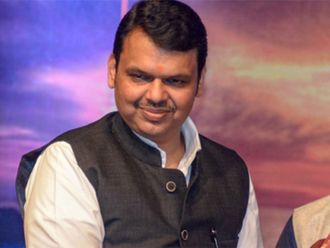Back in 2011, when I was a reporter with NDTV, I remember the non stop, saturated coverage of Anna Hazare’s anticorruption movement. I was among the many reporters at Ramlila Maidan, where Anna launched his fasts against Manmohan Singh’s government.
The UPA government at the time was mired in one corruption scandal after another. And here were a bunch of seemingly non political activists who were challenging the status quo. They would start a political entity which would emerge as the biggest political disrupter of our times. Leading it was former bureaucrat Arvind Kejriwal.
The man who made fighting corruption at the heart of his politics, which gave rise to a force known as the Aam Aadmi Party (AAP).
Over the next decade, the AAP stunned pollsters and politicians alike, winning Delhi with decisive mandates not once but twice and then extending that emphatic win to the big state of Punjab.
The face of the AAP was and is Arvind Kejriwal whose promise of clean governance, of good schools and health clinics, who’s oratory and campaign style evoked a massive response from voters. As the AAP grew, the Congress was diminished, as their voters had found an alternative.
Kejriwal also threatened the BJP as he changed his style of politics along the way. In the beginning, he was the “anarchist”, the “disrupter” who even as Chief Minister would sit on a dharna on the streets as his battles with the centre intensified. He had no qualms in taking on Narendra Modi directly, sometimes using language that raised eyebrows.
But then Kejriwal changed tack. He softened his criticism of the Prime Minister and began to avoid speaking on polarising issues like the Citizenship Amendment Act (CAA) or anything in defence of minorities. He began to do televised “havans” or prayers and projected himself as a Hindu alternative to the BJP.
Many of AAP’s supporters were dismayed by this change but for his core voters it seemed to work. Speak to people on the streets of Delhi and most will tell you that they respect the work Kejriwal has done over the years. Perhaps this was a key reason why he was seen as a long term threat to the BJP.
Sure, the AAP was beginning to expand in other states but not with much luck yet. As the Congress continues to diminish, only Kejriwal seemed to be the big national leader emerging to take on the BJP. Which is why Kejriwal’s arrest in an alleged corruption case by the Enforcement Directorate or the ED is the biggest challenge of his political career.
Alleged liquor scam
A man who made anticorruption his main plank today finds himself being accused of a major scam. Kejriwal has strongly denied any wrongdoing. But this is a make or break moment for him and his party. In the past, voters have often sympathised with political leaders who have been jailed by their opponents.
The most stark example is that of former Prime minister Indira Gandhi who was arrested by the Janata government after the Emergency which lead to the resurgence of the Congress.
The arrest was seen by ordinary citizens as an act of vengeance and gave her a new lease of life. The rest is history. Will the same story play out with Arvind Kejriwal? We will have to wait and see. The problem for Kejriwal and the AAP is not just his arrest but that of the entire top leadership of the party in connection with the alleged liquor scam or other cases.
If the ED moves to sanction the AAP as a political party as well, it will cripple the AAP and its finances badly. That says volumes about the lack of level playing field in the Indian political battleground today with just weeks to go for the general elections. The bank accounts of the Congress party have been frozen, top opposition leaders have been jailed.
The playing field is far from fair. But this is where AAP will be tested. Can they turn Kejriwal’s arrest into an opportunity to emerge stronger and garner sympathy? Or will the party disintegrate and break up? The BJP will certainly be trying everything in its power to ensure this.
The first test is saving the Delhi government. AAP says Kejriwal will do his job as Chief Minister from jail. That may not be the wisest move and could result in the imposition of central rule. How they navigate this immediate challenge will determine the course AAP will take going ahead.











